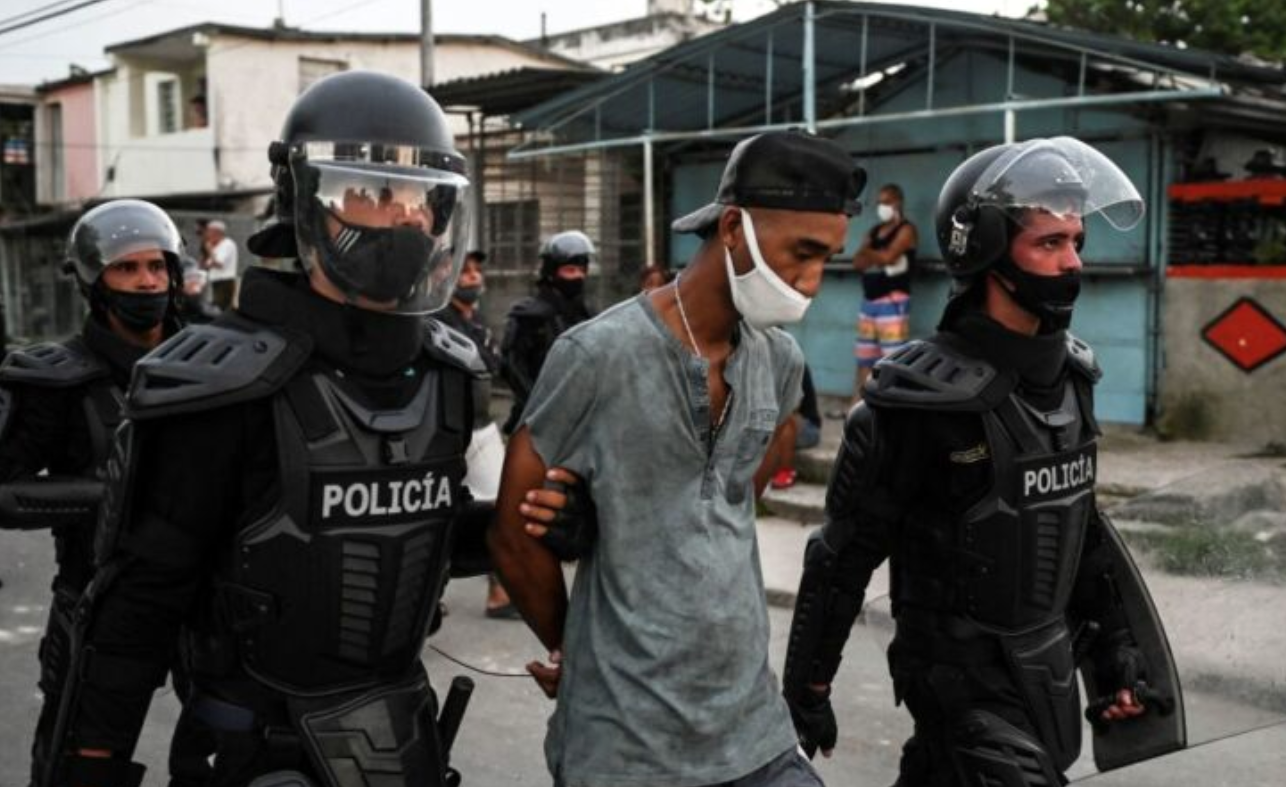On July 11, 2021, the most massive protests in Cuba’s contemporary history took place. The demonstrators demanded greater rights and freedoms, but a year after this event, organizations such as Human Rights Watch documented intense repression by the Cuban regime, systematic violations of human rights, and a drastic increase in the number of people forced to leave the country. In the face of this scenario, Latin American academia and critical thinking are often silent or selective, applying criteria of exceptionality to the Cuban case with little foundation.
Latin America is today a region where liberal democracy – as an imperfect model but in force in most of its nations – enables civic freedoms of expression, information, and research. A continent where academia can, as a rule, analyze and criticize the performance of governments without the ideological or police restrictions of the past. And a continent where intellectuals, having suffered for decades the brutal repression of military dictatorships, should value -for themselves and for others- the virtues of an open society, exercising critical thinking with epistemic rigor and pluralism.
However, as we have pointed out before, our regional academy reveals a precarious and biased adherence to the values of the democratic project. If it is a question of analyzing the expressions, past or present, of right-wing authoritarianism, there is no major problem. All the rigor is deployed against national security dictatorships, bureaucratic-authoritarian states, and conservative populism, even when their rulers have been democratically elected.
But when it is the turn of autocracies of leftist origin, the position changes. Cuba, Nicaragua, and Venezuela provoke conceptual stretching (and emptying), silence, and kind treatment. This is, now, triply paradoxical. Because of the growing level of sophistication of Latin American social sciences, because of the availability of data on the real situation in these countries, and, perhaps most relevantly, because these are today the only three fully autocratic regimes in the region. However, both the influence of authoritarian states (especially Cuba) on Latin American academic organizations and networks, as well as the political loyalties that they shelter, prevent the factors of analytical sophistication, access to data, and democratic political culture from playing their role.
Cuba today combines the paradox of being and not being exceptional. It is the nature of its political regime, akin to the Leninist model, which some still present as an exceptional “popular and participatory democracy”. But the growing diversity, stratification, and belligerence of its society, in the face of its elites, are not exceptional in the regional context. That is Cuba: stagnantly Soviet as a result of its regime, dynamically Latin American due to its changing socioeconomic and cultural reality. This was demonstrated by the events of July 11 and 12, 2021.
An example of the friendly and uncritical treatment of Cuba is the Latin American Studies Association (LASA), a space in which the rhetoric of the Cuban government is significant through the participation of academics from the island. In a statement issued in 2021, regarding the human rights situation, concern was expressed about the treatment received by academics, intellectuals, and critics in Cuba, but with little criticism of the government.
Another relevant case is the Latin American Council of Social Sciences (CLACSO). After the July 2021 demonstrations, the board and member Cuban centers published a statement “Facing the manipulation campaign against Cuba” that was harshly criticized for its authoritarianism by academics and intellectuals from more than 20 countries.
In addition, a recent book published by CLACSO, Cuba 11J: Protestas, respuestas, desafíos (Cuba 11J: Protests, Responses, Challenges), attempted to take stock of the most numerous, widespread, diverse, and also repressed popular protests of the last decades in Cuba. It exemplifies the position of a certain part of the academy that is not very critical of Cuba or that sustains the “Cuban exceptionality”. Published by CLACSO’s School of Latin American and Global Studies, the book reflects the special treatment given to Cuban reality.
Paradoxically, the book – which brings together contributions from Cuban and foreign scholars – does not seem particularly interested in defining what sociopolitical order is being discussed. There is no serious discussion of the actual principles, institutions, and processes of the political system in which the protests unfolded. The words authoritarian and authoritarianism appear only 4 times. They are never used to characterize the regime, but rather certain practices. The term tyranny is used once. Dictatorship appears 12 times, most of the time as a construction created from Western democracy that rejects other experiences such as Russia, China and, of course, Cuba. Autocracy, perhaps the most robust and least politicized notion, is not used. That is within the 72,917 words of the work.
In the book, authoritarianism alludes (p. 55) to the Russian and Chinese models, in a critique of polyarchies. The notion of tyranny (p. 144) is invoked to relativize criticism of the Cuban regime; while the word dictatorship is also used to question the political and academic discourse of democracy.
Unlike a work where the concepts are anchored in empirical evidence and robust theories, it seems that the categories are used here as personal beliefs and biases. Not a single intellectual appears who defends polyarchy as an alternative. The same polyarchy that sheltered the professional development of the authors of the work. The same regime that allows the publication of a book that repeatedly questions it.
It is an author living on the island who, almost alone, alludes (p. 68) to the reality of the problem: “There are real demands made peacefully, the ignorance of which can be risky. To this should be added that the official discourse justifies the use of repressive violence and this has a negative impact on sectors of the population that remain on the sidelines, but observe with consternation everything that happens. A relevant example is that of intellectuals and artists who have made public their condemnations. The events have had a negative impact on Cuba’s international image. It is perceived that the authorities, including the security authorities, were taken by surprise. There is also a perception that the level of repression is being concealed.”
The academic silences and biases regarding the “Cuban exceptionality” are questionable from the specific logic of scientific knowledge, as they distort both the long-standing conceptual discussion and the practical balances derived from the autocratic nature of Leninist regimes. But they also make invisible the human cost and political responsibility behind the (still) ongoing repression. This complicates the awareness and action, in the progressive democratic field, on the reality of Cuba.
Its balance is negative, both in the abstract field of ideas and in the concrete influence of these, by legitimizing authoritarian control and repression over the destiny of the people living in those countries. Different types of authoritarianism are the antithesis of critical thinking and of any authentic notion of popular sovereignty.
Translated from Spanish by Janaína Ruviaro da Silva
Autor
PhD. in History and Regional Studies, Universidad Veracruzana (Mexico). Master in Political Science, University of Havana. Specialized in autocratic processes and regimes in Latin America and Russia.












